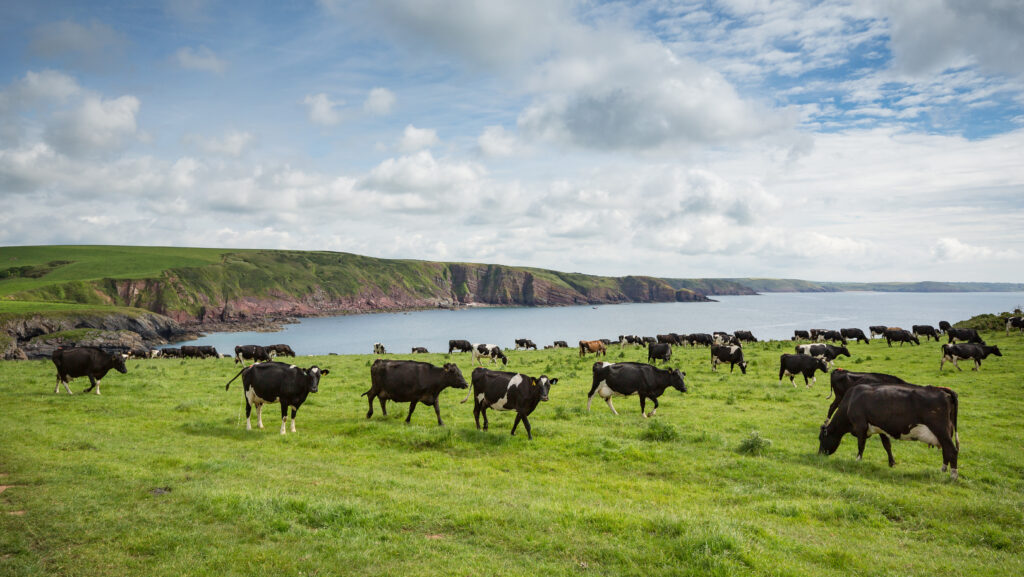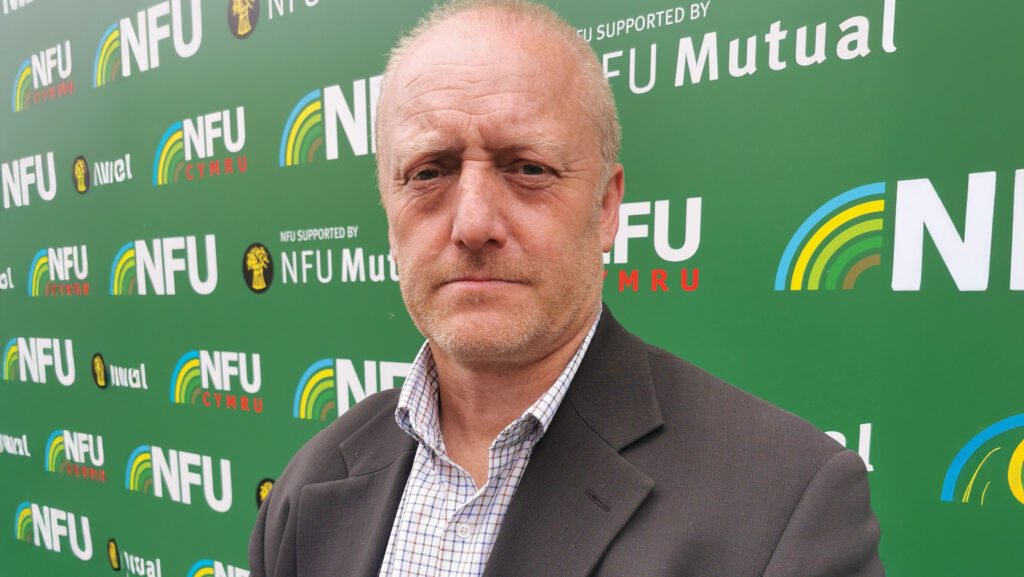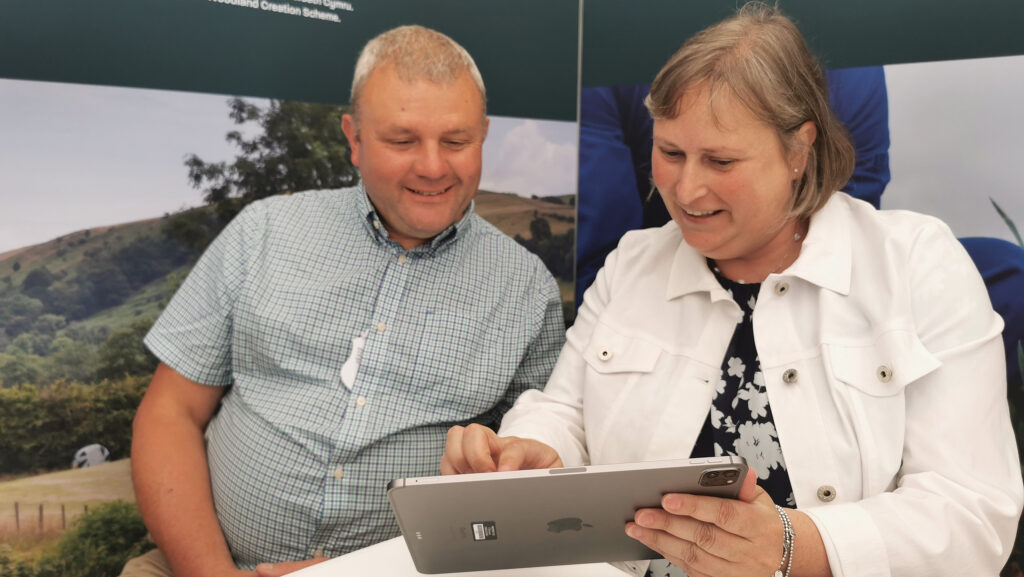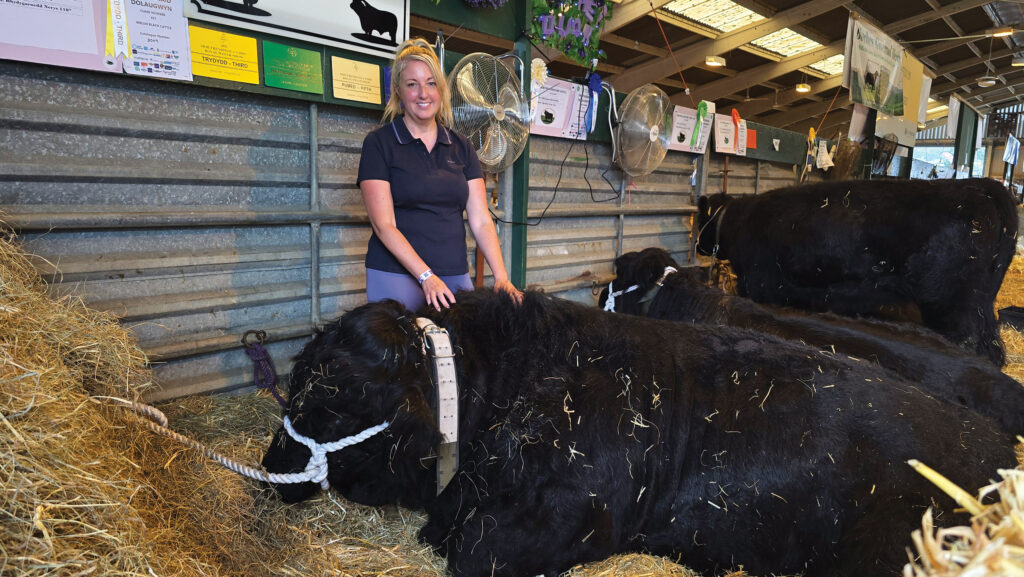Cautious welcome for SFS but BPS reduction will bite
 © Adobe Stock
© Adobe Stock The Sustainable Farming Scheme (SFS), launched a week before the Royal Welsh Show, was cautiously welcomed, but farming leaders warned that next year’s 40% Basic Payment Scheme (BPS) cut will leave many reassessing their business plans.
The Welsh government announced the surprise cut as part of the SFS launch on 15 July.
See also: £33m for SFS preparatory schemes announced
The SFS will replace the BPS completely by 2029, though farmers can still opt for their BPS payment until 2028 by when it will have been reduced by 80%.
Farmers’ Union of Wales president Ian Rickman said the 40% BPS reduction is not viable for his farm in Carmarthenshire.
Number crunching
“I doubt our business can survive with a 40% drop in BPS support. We’ll have to crunch the numbers and decide what we’re going to do,” he told Farmers Weekly at the Royal Welsh Show.
Mr Rickman, who farms with his business partner, Sean Jeffreys, said: “As a 63-year-old farmer, I have concerns about what the new scheme is asking us to do. Sean doesn’t seem so worried about it though.”
He added that there is a cost to carrying out all the additional requirements under the SFS, including the work for the required 10% habitat provision, which must be weighed up carefully against the BPS reduction.
Mild optimism
NFU Cymru president Aled Jones, who two years ago said the scheme wasn’t workable for his farm while it included 10% mandatory tree cover, now feels more optimistic and says there are pockets of land where tree planting is possible.
“A quick scan around the farm looking to potential areas, it was clear we wouldn’t get to 10%. Now that’s gone, these little pockets are still available, and so I’ve got no resistance,” he said.
While Mr Jones didn’t commit to whether he would now apply for the scheme, he said he will consider it after the data confirmation on habitat has been completed for his farm.
“Hopefully, I will be able to participate in the scheme,” he added.
No further changes
The Welsh government said no further changes would be made to the scheme and urged farmers to make use of its online “ready reckoner” to get an indicative SFS universal payment value, as well as a BPS tapered payment value for 2026.
Deputy first minister Huw-Irranca-Davies was pleased with how the scheme has been received.
“On the whole, I think it’s landed well, and the conversations I’ve had are people saying that’s a really good start, and it is a start.
“Now we just need to build on this and take it forward to January, when the scheme will launch,” he told Farmers Weekly.
Mr Irranca-Davies said he thought the scheme delivered excellent value for money for the taxpayer as well.
“Value for money means a scheme that delivers not only viable farm businesses that can be passed on to the next generation, but climate resilience, habitat restoration, clean rivers, good soil. This scheme does it,” he insisted.
Watch the video of our interview with Huw Irranca-Davies below.
Farmer reaction
Beef farmer
Certain sectors may face challenges in the transition to the Sustainable Farming Scheme (SFS) compared with the current Basic Payment Scheme, say farmers.
Paul Williams, a multi-tier beef farmer, who farms in the Upper Conwy Valley in North Wales, has put his land details into the Welsh government’s ready reckoner, which shows he is potentially a marginal gainer by entering the SFS with an approximate increase of £1,500 a year.

Paul Williams © MAG/Phil Case
“We are currently adhering to most requirements for the entry options in the SFS through our participation in farm assurance, such as the Farm Assured Welsh Livestock Beef and Lamb (Fawl) scheme.
“We also do annual nutrient management plans,” Mr Williams said.
The average BPS claim in Wales is about £25,000 per annum and the farm is within this category.
The ready reckoner provides a figure that is marginally higher than what the farm receives in BPS, with an approximate increase of £1,500 a year.
Mr Williams says the £107/ha Social Value Payment is key for the scheme to be viable.
“This is for the entry level SFS, but we will naturally look at the Collaborative and Optional elements to see if we can gain further through these options,” he added.
Mr Williams stresses, however, that there will undoubtedly be a cost element in participating in the SFS, due to the requirements needed to qualify for the different options.
Dairy farmer
Dairy farmer Martin Griffiths runs a 100ha grassland farm just north of Aberystwyth, west Wales, milking 180 Holstein-Friesian cows, primarily autumn calving with an emphasis on grazing.
Mr Griffiths welcomes the previous work of the SFS roundtable in introducing the Social Value Payment of £107/ha, in recognition of the wider value of Welsh agriculture.

Martin Griffiths with a Welsh government official © MAG/Phil Case
However, he remains undecided about joining the scheme and needs more time this autumn to carefully review the details.
As a member of both the Fawl scheme and Red Tractor, Mr Griffiths believes his farm already meets most requirements of the Universal actions.
However, the 10% habitat requirement may delay his ability to enrol in the scheme.
After inputting his farm business data into the ready reckoner, he found that joining the SFS in January 2026 would cut his payment by about 6% compared with this year’s BPS.
However, if he opts to remain in the BPS instead, his payment would fall by 40%.
“The barrier we face as a dairy business is our ability to conform with the 10% habitat requirement,” said Mr Griffiths. “We will need to explore all the options available.”
Beef and sheep farmer
Jessica Williams, a third-generation beef and sheep farmer near Tywyn on the West Wales coast, runs a 202ha family farm with 100 pedigree Welsh Black cattle, 500 Welsh Mountain ewes, and 100 Llyn sheep.

Jessica Williams © MAG/Anne Dunn
While she’s waiting to see the Welsh government’s impact assessment and economic modelling for the Sustainable Farming Scheme (SFS), Ms Williams feels the scheme has become more accessible, particularly with fewer Universal actions.
Still, the decision to switch from the Basic Payment Scheme (BPS) to SFS isn’t easy. “You don’t want to be caught between a rock and a hard place,” she said.
“The scheme isn’t going to suit everyone – it’s a difficult decision.”
With a 40% drop in BPS from next year, staying out of the SFS isn’t really an option. “We would struggle and have to change the system quite drastically.”
Ms Williams remains hopeful, thanks to past experience with agri-environment schemes like Glastir and the farm’s work restoring hedges, stone walls, and planting trees.
What she wants most now is longer-term funding certainty. “We need to plan five to 10 years ahead. You can’t run a business looking just 12 months out – that’s not long enough in farming.”
Sustainable Farming Scheme – what you need to know
The SFS will open on 1 January 2026, and there are three layers to the scheme – the Universal layer, the Optional layer and the Collaborative layer.
This three-layered structure is built upon scheme requirements, which include:
- SFS Regulatory Baseline – Cross compliance plus regulations covering public access and the control of invasive non-native species
- Universal Code – framework of non-regulatory requirements which SFS applicants must adhere to
- Scheme requirement to have 10% habitat
- Farm level carbon baseline (second year of the scheme).
Applications may be made using the single application form via Rural Payments Wales Online from March through to 15 May each year.
The Universal layer now comprises 12 actions including soil health, integrated pest management, habitat maintenance, hedgerow management, a tree and hedgerow planting opportunity plan, and animal health and welfare.
To get the payment, farmers will need to meet these actions where they are relevant and applicable to them.
The Optional and Collaborative layers will then be available for farmers who want to do more and so boost their income.
Payments and budgets
The Welsh government has committed the equivalent of this year’s BPS budget to the Universal payments in 2026 (worth £238m for the Universal and BPS payments combined).
It has also indicated that a minimum of £102.2m will be allocated to the Optional and Collaborative layers, including a ring-fenced amount for tree planting and hedgerow creation.
To qualify for payment under the SFS farmers need to complete 12 Universal actions and scheme requirements.
The Universal payment includes:
- Whole farm payment – £70/ha for the first 70ha, £2 per ha for all remaining eligible land, including common land based on rights
- Social value payment – £107/ha for all eligible land
- Habitat maintenance payment – £69/ha for habitat maintained as part of UA5 or credited under UA6
- Woodland maintenance payment – £62/ha for all woodland maintained as part of UA9.
- Farms joining the scheme in 2026, with 100ha or less will receive an additional £1,000 as a one-off stability payment.
